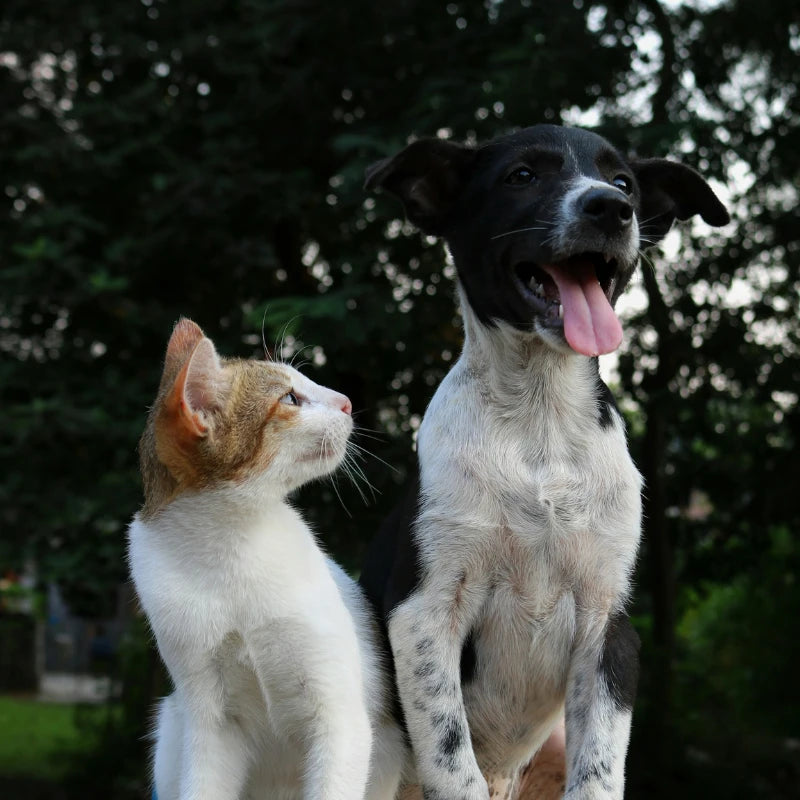Can Cats Eat Cheese? Safe Types, Risks & Expert Guidelines
As a cat parent, you’ve probably wondered, “Can cats eat cheese?” It’s a common question, especially when your kitty gives you those big, pleading eyes while you’re snacking. The good news? Yes, cats can eat cheese—but there’s a catch. Getting this right helps you make smart choices that keep your cat healthy while still enjoying special treats together.
The Short Answer: Yes, but Sparingly
Cats can have cheese as an occasional treat, but it’s not something they should eat all the time. While it’s not toxic, many cats struggle to digest it properly. The key is knowing when, how much, and what kind to give them. Let’s dive into the details.
5 Golden Rules for Feeding Cheese
-
Less is more: Tiny portions, infrequent treats
-
Hard over soft: Lower lactose content in aged cheeses
-
Watch and learn: Every cat reacts differently
-
Health first: When in doubt, skip it
-
Vet check: Always consult for cats with health issues
Safe vs Dangerous Cheese for Cats
SAFE CHEESE OPTIONS

DANGEROUS CHEESE FOR CATS

Why Do Cats Go Crazy for Cheese?
Ever wonder why your cat becomes a cheese-seeking missile? Here's the fascinating science:
The Attraction Factors
- High Fat Content: Triggers carnivorous instincts (cheese = 30%+ fat)
- Protein Appeal: Cats detect the 25% protein content
- Salty Taste: Natural sodium attraction
- Texture: Creamy consistency mimics prey fat
- Smell Memory: Associates cheese scent with high-value foo
The Evolutionary Explanation
Cats' ancestors developed strong fat-detection abilities for survival. That same instinct makes modern house cats obsess over high-fat human foods like cheese, even when it's not good for them.
Why Can't Most Cats Eat Cheese?
Did you know that most cats can’t handle dairy as well as we might think? About 70% of adult cats don’t have enough of the enzyme (called lactase) that helps digest lactose, the sugar found in milk and cheese. This means that for many cats, eating dairy can lead to tummy troubles like bloating, gas, or diarrhea.
Signs Your Cat Can't Handle Cheese:
-
Throwing up (usually 2-6 hours later)
- Diarrhea or loose stool
- Not wanting to eat
- Acting uncomfortable or tired
When Cats Should Never Have Cheese?
Some cats should avoid cheese completely, no matter what type.
Health Problems That Mean No Cheese:
-
Diabetes or heart problems
- Kidney disease
- Stomach or intestinal issues
- Cats on special prescription diets
- Overweight cats (cheese has lots of calories)
Special Cases:
-
Very old cats (more likely to have problems)
- Cats recovering from surgery
- Cats with food allergies
Final Thoughts
Cheese isn't necessary for cats. They're obligate carnivores who get complete nutrition from quality cat food. Think of cheese like candy for humans - occasionally okay, never necessary, potentially problematic. After all, a happy, healthy cat is the ultimate goal!
FAQs
1. Can cats eat cheese everyday?
No, cats should never eat cheese everyday.
Even cheese-tolerant cats risk serious health problems with everyday consumption. Cheese is extremely high in calories - a dice-sized piece equals 2.5 cheeseburgers for humans. Since 70% of cats are lactose intolerant, daily dairy can cause ongoing digestive issues and nutritional imbalances.
2. My cat ate cheese - what should I do?
Stay calm - most cats will be fine after small amounts.
Provide fresh water and monitor for 24-48 hours. Watch for vomiting, diarrhea, or lethargy. Call your vet immediately if symptoms persist, your cat has health conditions (diabetes, heart disease), or consumed dangerous varieties like blue cheese.
3. Why do cats love cheese if it's bad for them?
Cats are naturally attracted to cheese's high fat (30%) and protein (25%) content, which triggers their carnivorous hunting instincts. The strong aroma and creamy texture mimic high-value prey fat.
This creates an evolutionary mismatch - cats evolved to eat meat, not dairy. Adult cats lose lactose-processing ability after weaning, making cheese appealing but problematic.





Leave a comment